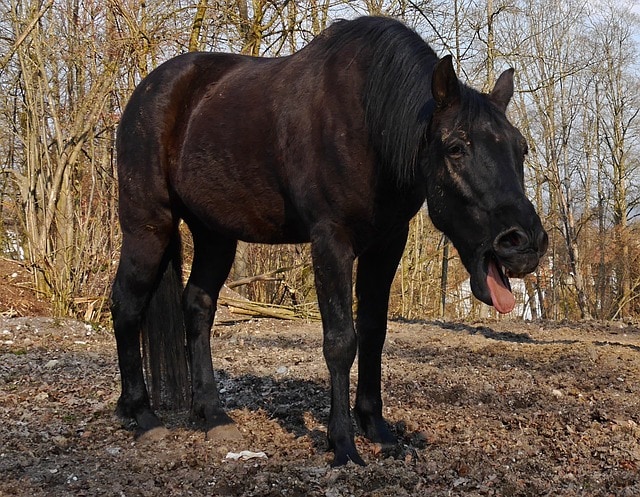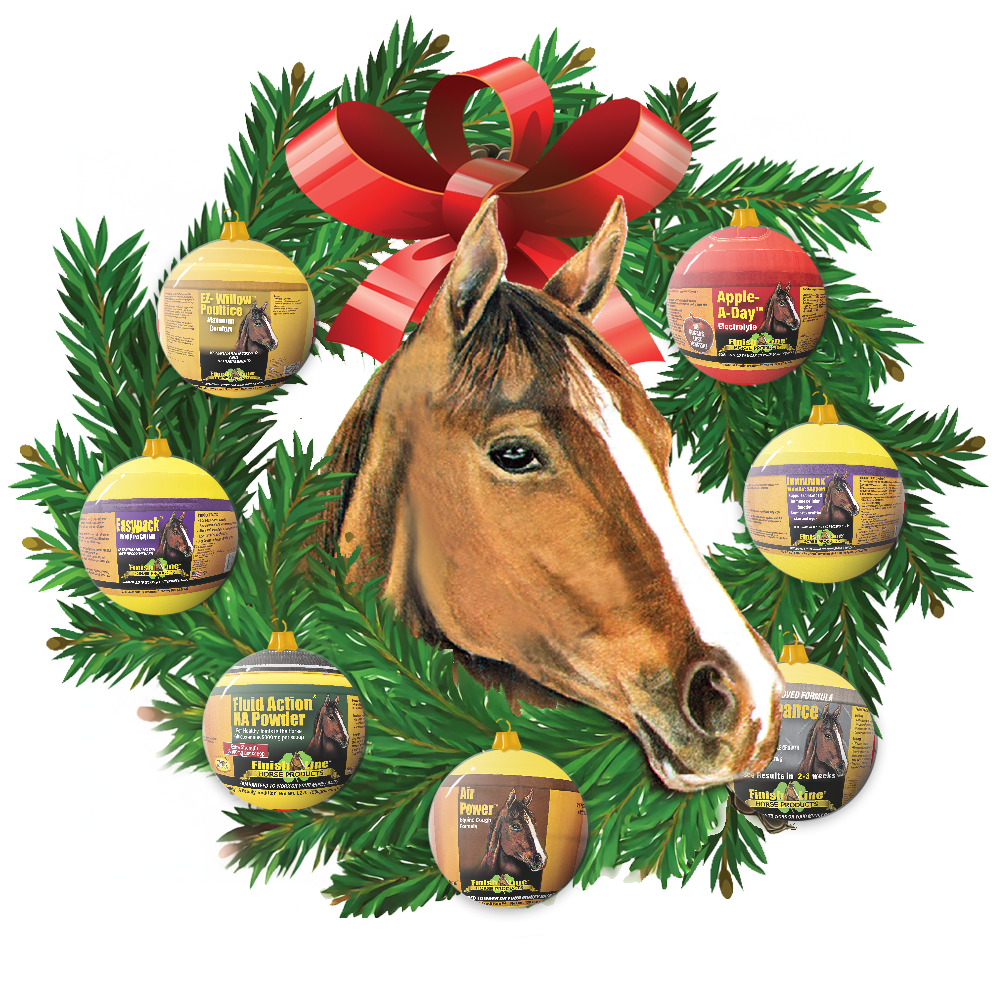A cough from your horse every once in a while isn’t a big deal, but persistent coughing could indicate a problem. Horses cough to remove foreign objects from their lungs or as a response to irritation, but too much can cause damage and make it hard to breathe. If your horse can’t stop, you need to figure out the root cause of the cough so you can begin to treat it.
“Heaves is a permanent disease that can be deadly if left untreated.”
Common causes
Poor air quality contributes to most cases of chronic cough. Horses in a moldy or dusty environment constantly breathe in particles that irritate their lungs, Horse Journal noted. Part of what contributes to this environment is old bedding in the horse’s stall. Ammonia from urine collects in the ground, and your horse constantly breathes it in when lowering its head to eat. Your horse also might be allergic to hay mold which, if ignored, could lead to heaves, noted Horse Talk. Like asthma in humans, heaves is a permanent disease that can be deadly if left untreated.
Other causes include respiratory infections. These often trigger pharyngitis, which refers to inflammation in the back of the throat. Upper respiratory viruses are tricky – they mutate rapidly, so it’s hard for specialists to develop a vaccine. Symptoms of a viral infection include a dry cough, fever, watery nasal discharge and a loss of energy and appetite.
Bacterial infections are rare and most dangerous to young and elderly horses, as well as equines with Cushing’s disease. These infections trigger a thick discharge from the nose along with fever, weight loss and a wet cough.
Treating chronic cough
All-natural horse healthcare products can help alleviate a minor cough due to irritation. Natural ingredients like menthol and eucalyptus are traditionally used for healthy breathing. Give your horse about a month to recover from pharyngitis, as exercise can do more damage to the lungs and throat. If, after this time, the cough doesn’t clear up, Horse Talk advised working with your vet who may want to look at the area with an endoscope.
If your horse’s cough is triggered by its environment, make sure its stall is well-cleaned and ventilated. Instead of feeding dry hay, give your horse pellets or soak the hay in water to eliminate the dust factor. Thankfully, healthcare products that assist in treating pharyngitis can also be used for mild cases of heaves.
You’ll need a veterinarian’s advice to diagnose and treat a viral or bacterial infection. Although it’s impossible to immunize your horse against every possibility, Horse Journal advised administering the influenza and rhino virus vaccines twice a year.
A cough once or twice at the start of exercise is no big deal, but persistent cough represents a potential serious issue. Make sure your horse has adequate time to rest – sometimes more than you think – before putting it back to work.
Air Power™ can help alleviate some coughs. Air Power™ is an all-natural aid in the relief of minor coughs due to irritation. This all-natural formula uses ingredients such as Honey, Menthol, Eucalyptus Oil, Lemon Juice, Aloe Vera, Apple Cider Vinegar, and Ethanol to help stop a horse’s cough.











